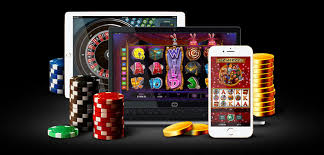
Exploring Smart Contract Lottery Pools: The Future of Fair Gaming
With the rapid advancements in blockchain technology, the gaming industry is experiencing a revolution unlike any other. Among the most innovative applications of blockchain is the introduction of Smart Contract Lottery Pools, which are changing the landscape of traditional lotteries forever. In this article, we will explore what Smart Contract Lottery Pools are, how they work, their advantages over traditional lottery systems, and what the future holds for this emerging gaming trend. For a deeper dive into the impact of technology in gaming, you can visit Smart Contract Lottery Pools winmatch-in.com/about-us.
What Are Smart Contract Lottery Pools?
At their core, Smart Contract Lottery Pools are decentralized lottery systems built on blockchain technology. They utilize smart contracts—self-executing contracts with the terms of the agreement directly written into code—to manage the entire lottery process. This includes ticket sales, winner selection, and prize distribution, all automated without the need for a central authority or intermediary.
How Do Smart Contract Lottery Pools Work?
Understanding the mechanics behind Smart Contract Lottery Pools requires a grasp of both blockchain technology and smart contracts. Here’s a basic breakdown of how these pools operate:

- Purchase of Tickets: Players buy lottery tickets using cryptocurrencies, which are sent to the smart contract.
- Pooling Funds: The smart contract collects all ticket fees, creating a prize pool. This transparency ensures that all players can see the total amount available for prizes.
- Drawing the Winner: Once the lottery period ends, the smart contract uses a secure and transparent algorithm to select a winner. This can often include random number generators or verifiable randomness protocols to guarantee fair results.
- Prize Distribution: Upon selecting the winner, the smart contract automatically distributes the prize from the pool, eliminating delays and reducing the risk of fraud.
Advantages of Smart Contract Lottery Pools
Smart Contract Lottery Pools offer numerous advantages over traditional lottery systems that can attract players seeking a fair and transparent gaming experience:
- Transparency: Every transaction and operation is recorded on the blockchain, allowing players to verify the entire process independently. This transparency builds trust among participants.
- Decentralization: By eliminating intermediaries, these lotteries operate in a decentralized manner. This means no single entity controls the funds, reducing the risk of fraud or mismanagement.
- Lower Fees: Traditional lotteries often have high overhead costs due to administration and operations. Smart Contract Lottery Pools, being automated, can reduce or eliminate these fees, providing better odds for players.
- Global Participation: As long as players have access to the internet and cryptocurrency wallets, they can participate in these lotteries from anywhere in the world, increasing the potential player base.
Challenges and Considerations
Despite their many advantages, Smart Contract Lottery Pools also face several challenges:

- Regulatory Hurdles: The legality of cryptocurrencies and blockchain-based lotteries varies vastly across jurisdictions. This patchwork regulatory environment creates uncertainty for operators and players alike.
- Security Risks: While blockchain technology is generally secure, vulnerabilities in smart contracts can lead to hacks or exploits. Developers must prioritize security and conduct thorough audits to protect user funds.
- Complex User Experience: For many users, engaging with cryptocurrencies and smart contracts can be complex and daunting. Ensuring a user-friendly experience is crucial for widespread adoption.
The Future of Smart Contract Lottery Pools
As blockchain technology continues to mature, the potential for Smart Contract Lottery Pools to revolutionize the gaming industry grows. Future developments could include:
- Enhanced Security Protocols: Continued advancements in cryptographic techniques will likely improve the security of smart contracts, making them more robust against attacks.
- Integration with DeFi: The intersection of decentralized finance (DeFi) and lottery pools could lead to more innovative financial products, such as liquidity pools or earning interest on prizes before they are claimed.
- Gamification: As user engagement becomes increasingly important, lotteries may incorporate elements of gamification to make participation more appealing, including loyalty rewards and interactive experiences.
Conclusion
Smart Contract Lottery Pools present a groundbreaking shift in how lotteries function, merging the thrill of chance with the security and transparency provided by blockchain technology. As players seek more trustworthy and engaging gaming experiences, the popularity of these decentralized lotteries is likely to rise. While challenges exist, the path forward is promising, with the potential to transform not just the lottery industry but gaming as a whole. In a world increasingly drawn to decentralization and fairness, Smart Contract Lottery Pools may just be the next big thing in gaming.




